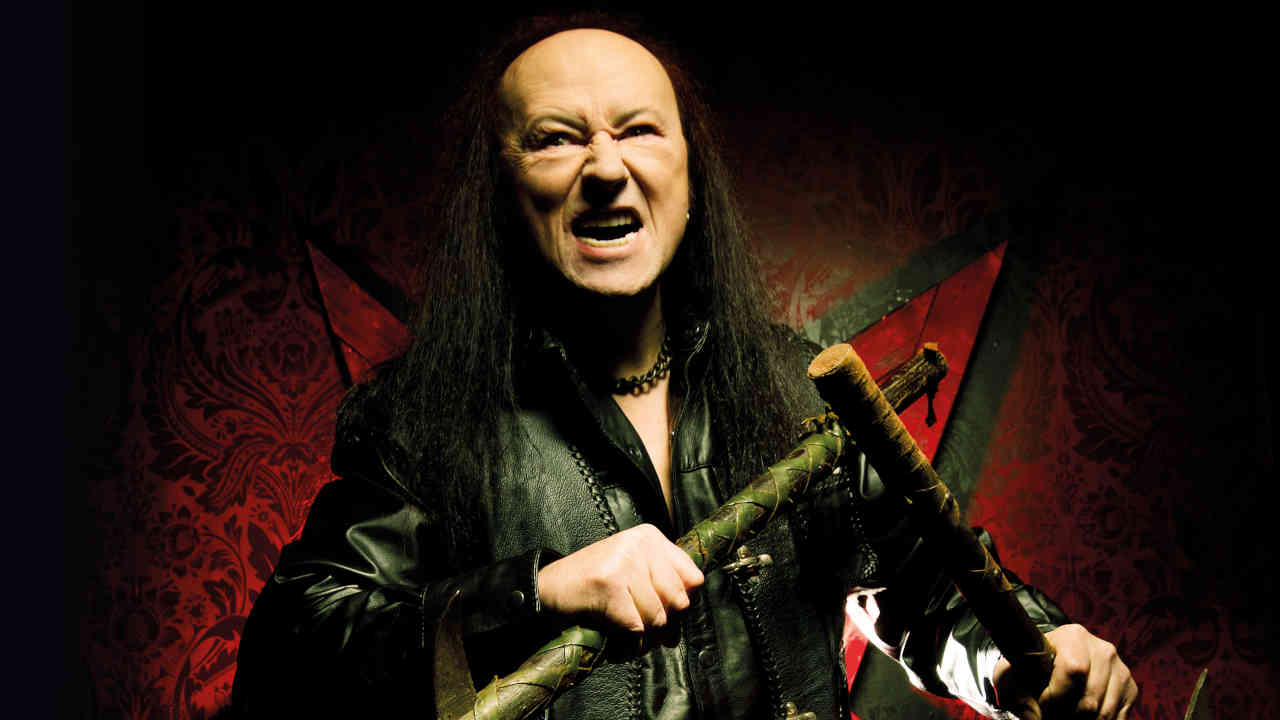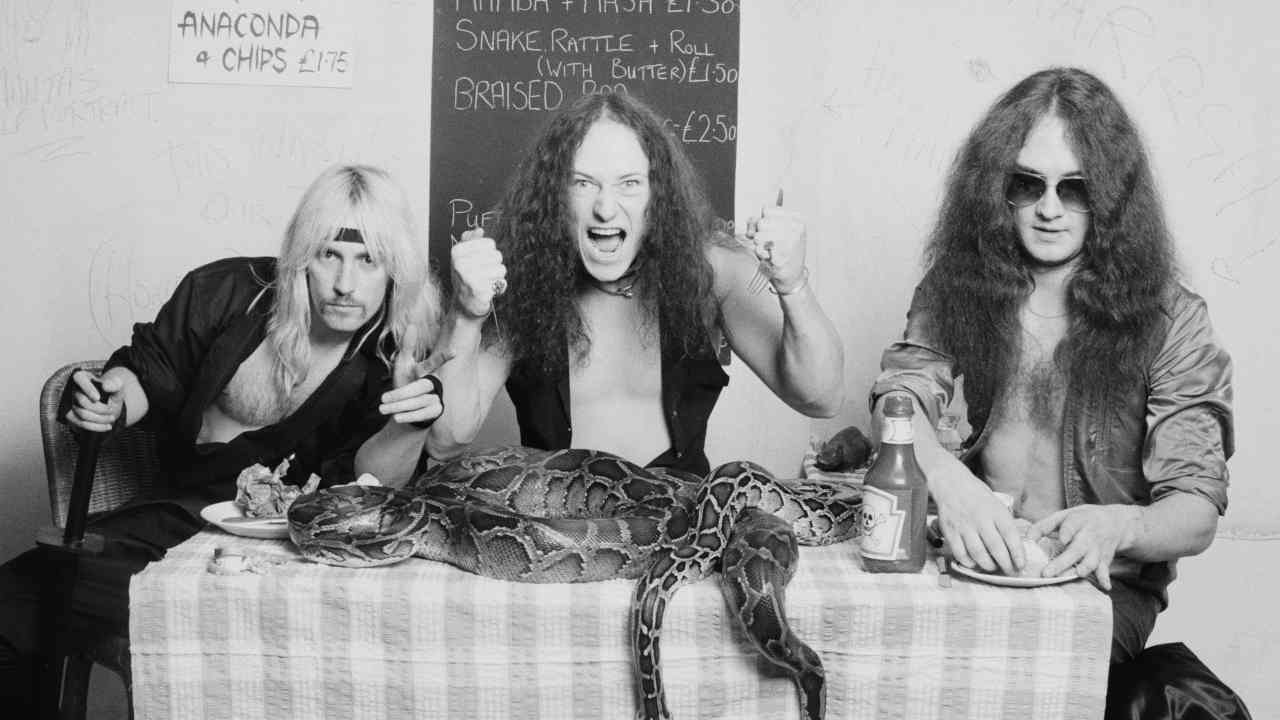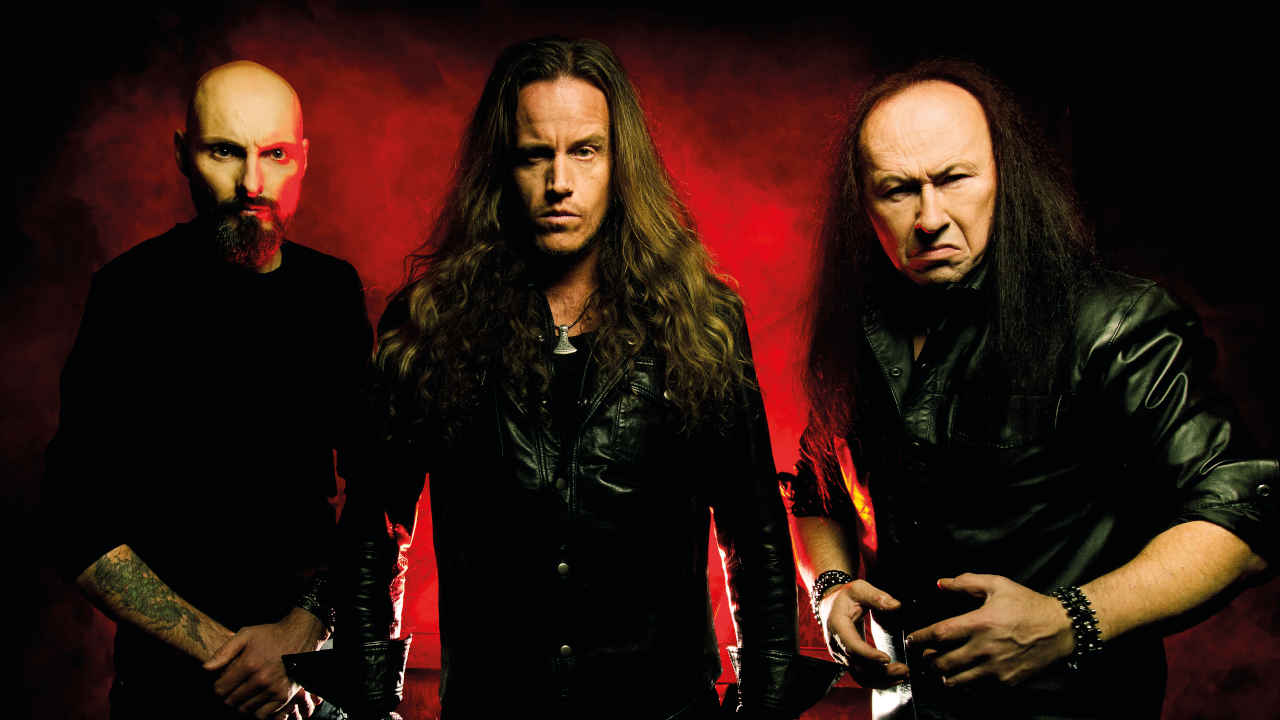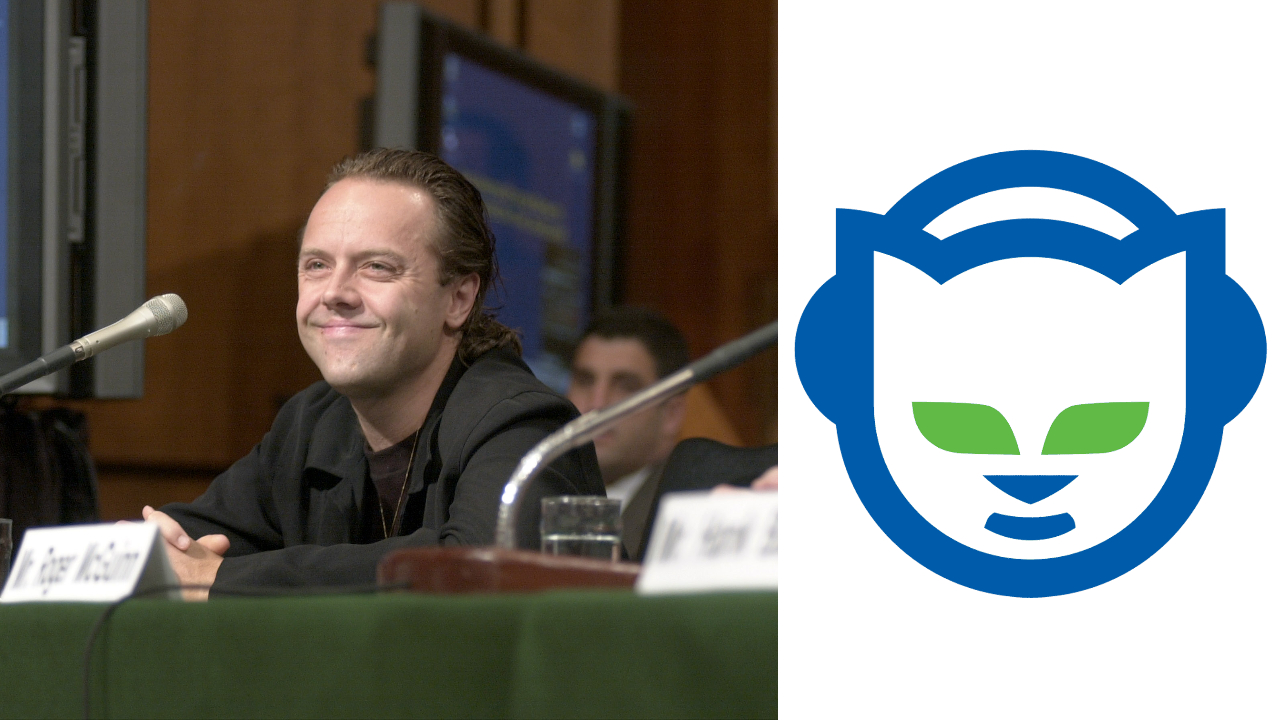Venom frontman Cronos: “Metallica have had some shit albums – they’d have to admit that”
Venom legend Cronos on the birth of black metal, the success of former support band Metallica and why there’s zero chance of the classic line-up getting back together

It was in 1980 that the teenage Conrad Lant took the name for which he’d become famous. As the bassist and vocalist in Venom, a band on a mission to create the heaviest and scariest music ever heard, he knew that he and his co-conspirators, guitarist Jeff Dunn and drummer Tony Bray, required demonic aliases to match the darkness of their devil-worshipping songs.
The solution lay in astrology and ancient mythology. Born on January 15, 1963, Conrad’s star sign is Capricorn, and as he explains now: “My planet is Saturn, and the Greek god of Saturn is Cronus. So for me it was obvious.”
With Conrad as Cronos, Jeff as Mantas and Tony as Abaddon – the latter two names drawn from Anton Szandor LaVey’s occult bestseller, The Satanic Bible – Venom rose out of the New Wave Of British Heavy Metal to define a new form of extreme music immortalised in the title of their second album from 1982: Black Metal.
Forty years on from that landmark, Conrad is the sole remaining member of the classic Venom line-up, while Jeff leads a rival act, Venom Inc., which until recently also featured Tony.
Speaking to Hammer from his home in Northumberland, close to Newcastle, the city where Venom formed, Conrad talks at high speed and in thick Geordie tones as he relates the story of his life. “It’s nice and quiet here,” he says, laughing. “And I’ve got my Metal Hammer award on the mantelpiece – pride of place!”

Let’s start with your introduction to heavy music. Which bands got you hooked?
“In the late 60s, early 70s, it was Led Zeppelin, Deep Purple and Black Sabbath. Those early Sabbath albums really did something to me. But really, Status Quo was the first band where I thought: I can properly relate to this. I loved all the denim and the hair and the way they played – heads down! When I was 11, Quo did six nights at Newcastle City Hall and I saw every show.”
Sign up below to get the latest from Metal Hammer, plus exclusive special offers, direct to your inbox!
Were you a rowdy kid, a teenage delinquent?”
“I do believe I was! Getting expelled was pretty normal. But at my school, one of the sports we used to do was pugilism. We used to beat the shit out of each other as part of the curriculum! You learn to stand up for yourself, and I think that’s something I carried into Venom with the attitude: if you don’t like it, fuck you!”
You were 16 when you joined Venom in 1979, but you started out as second guitarist. The singer was Clive Archer, whose stage name was, blasphemously, Jesus Christ!
“Clive was a chilled guy, very shy, but great onstage. Big and tall, with long blond hair down to his arse. He wore make-up like Alice Cooper – white face and black eyes. A few months after I joined we had a gig at this church hall and the bass player bailed on us, so I borrowed a friend’s bass and told the rest of the band, ‘We can still do the gig, I’ll just play guitar on the bass!’ I plugged into my Marshall stack with all my fuzz pedals and that’s how my ‘bulldozer bass’ style was born.”
After ‘Jesus’ left the band, you became the frontman. Who was your role model for this?
“I always wanted to carry the Ozzy thing to the nth degree. I was always reading up on Satanism and demonology and witchcraft. I went out with a girl who was in a witch coven and that sparked something in me. I loved Sabbath, but I realised that they’d only touched the tip of the iceberg. This could go so far. Ozzy was singing about being chased by the Devil. I thought: I’ll be the Devil!”

How far did you take it with all that occult stuff? Did you participate in rituals?
“I’ve been part of rituals that are relatively harmless. Ringing a bell and saying an incantation. And really, it’s for wellbeing. I was interested in what witches believed with Wicca and the druids, and how they related to the elements – the Sun, the moon, the stars. It blows my mind when you think of the Catholic church and how paranoid they were to paint these religions as evil when they were actually a positive force based on goodwill and peace. But of course, that’s not what I was doing with Venom. In my lyrics I was basically taking the God squad position and saying, ‘OK, let’s say it’s true. Satan is on his throne and he’s burning souls and he’s gonna come and get you and stick a hot spike up your arse!’ So let’s really push that – because it sounds fucking amazing! And you know, when I see bands today like Behemoth or Dimmu Borgir, that’s where I wanted to go, but it wasn’t possible back in the 80s. I love the imagery of where they’re taking it now, because it’s following on from all the ideas I had and still have.”
One of the biggest influences on Venom’s music was Motörhead…
“Yeah, of course. I mean, fucking hell – you don’t get a more rock’n’roll band than that! And we were able to grab the Motörhead audience. We grabbed the punks and the metalheads. I was 14 when punk came along, and that was another lightbulb going off in my head. I really couldn’t swallow the political side of punk: ‘God save the Queen, the fascist regime.’ And I wasn’t going to put safety pins in my nose. But I liked the idea of the big middle finger, which was what punk was. When rock became all, ‘Ooh, baby’ with a sock down your pants, I said, ‘Fuck this!’ But I thought: if I take the rock image and the punk attitude, then you have a metal band who don’t give a shit.”
When Venom’s debut album, Welcome To Hell, was released in 1981, Sounds writer Geoff Barton hailed it as “possibly the heaviest record ever allowed in the shops for public consumption”. Was that everything you’d dreamed of?
“It was brilliant, and just what I needed at that time, a real confirmation of what I was doing. Geoff Barton was very helpful at the beginning of our career, because nobody else was giving us a fucking inch. When we made our first demos, I sent them off to every record company and I got a letter back from EMI where all it said was: ‘FUCK OFF!’”
In 1982 came Black Metal. The music was so powerful, the title so evocative, it became one of the most influential metal albums of all time. Is this Venom’s definitive statement?
“I think so. But at the time you didn’t have time to think, it was all moving so fast. We made Welcome To Hell in three days. Black Metal was six days of recording, one day mixing. When we did the song Black Metal, I said, ‘Just for laugh, let’s play it as a fast as we fucking can’ – and that was the version that made the album.”
Venom had a huge influence on thrash metal, and in the mid-80s you had Metallica and Slayer as opening acts on tour. Did you view them as kindred spirits? A threat? Maybe a little of both?
“I hoped they’d be big, because they were good bands, friends at the time, and it was fun on the road. I hoped this scene would get bigger. I wanted everybody to love this music, and the heavier the better. But I never would have thought that Metallica would have had the success that they’ve had. They’ve had some shit albums – they’d have to admit that. But the first three albums, fucking great.”
You’ve said that Metallica’s Whiplash ripped off the riff in Venom’s Witching Hour, but surely Slayer owed a greater debt to you?
“Well, a few years back I was hanging out with Tom Araya at a Slayer gig in Glasgow when he got a phone call from his son, who must have asked him who he was with, because Tom said, ‘I’m sitting with the guy whose career I’ve been copying for my whole life!’ Tom is great, man!”
Back in those crazy days of the 80s, was it all sex and drugs in Venom?
“It was for me! Jeff just wanted to go back to his hotel room for a cup of tea. But fucking hell, I wanted to live that life! I wanted to do that whole rock’n’roll thing, shagging a bird over the back of the tour bus. How can you be a real rock star if you don’t do it all?”
Jeff Dunn quit the band in 1986. You left later that year to form the band Cronos, while Tony Bray kept Venom going, with various line-ups and little success, until 1992. Looking back on that period, where did it all go wrong?
“Apathy. Too much too fast, and then not enough commitment. We lost the work ethic. So I formed the Cronos band to get away from Venom and experience a new rock’n’roll story.”
In a strange twist, it was during Venom’s hiatus that the Norwegian black metal scene rose to prominence in 1993. With bands such as Mayhem, Emperor and Burzum citing Venom as their inspiration, what did you make of it all?
“If I have to be 100% honest, I was in the States with the Cronos band and the guitarist had some Mayhem and Burzum stuff and what I heard was: ‘Come back, Cronos!’ I was doing music that was so un-Venom, because it all ended so badly. But when that whole black metal thing started in the 90s, I think I needed that perspective of getting out of Venom to see what Venom really was. So I contacted the other two guys and said, ‘Shall we have another shot at this and do it properly?’ So we did the live album, The Second Coming [1996], and a new album, Cast In Stone [1997], but to me it still wasn’t Venom. We hadn’t found that thing that we’d lost, and I think we never will, it’s gone. Welcome To Hell and Black Metal are part of that era, and there it shall stay.”
On a purely musical level, did you admire the early Norwegian black metal?
“Definitely. It was so dark and so evil. It was the next generation. But it also created what I call the ‘black metal police’ – all these people going, ‘This band is black metal! This band isn’t!’ And I love this one: ‘Venom aren’t black metal!’ Ha ha! I just wish they’d come up with their own term, like Norse metal. That’s what I say to these guys: ‘You’ve stolen my term, but you’re not really black metal, because black metal is power metal, speed metal, thrash metal, death metal – all the metals together!”

You can laugh about the black metal police, but the Norwegian scene had a culture of violence, criminality, racism, homophobia and neo-fascism. Knowing that Venom’s name was inextricably linked to that scene, what effect did that have on you?
“It was disgusting. People like that, I want to sit them down in front of TV and play the entire The World At War [26-episode WWII documentary] series. Watch that and tell me fascism is a good idea, you fucking idiots!”
On a happier note, this band of yours is still going strong. Can you explain why?
“You have to evolve. I can’t just play Welcome To Hell for the rest of my life. The line-up I’ve got now [with guitarist Stuart ‘Rage’ Dixon and drummer Danny ‘Dante’ Needham] is the strongest I’ve had the since the original days. I automatically write black metal songs, but with these guys I can say, ‘Can we turn this upside down and form some new shit?’ It’s all about trying new ideas and challenging myself as a musician.”
You haven’t spoken to Jeff Dunn and Tony Bray in 20 years, so the odds on a reunion are… what?
“Less than zero. I owe them nothing, and they’ve got nothing I want. We still get fans saying, ‘The Venom Legions want the old line-up back together!’ We tried in the 90s and it wasn’t well received. The last thing I want to do is get onstage with those other two doddery old fuckers and put on a sub-par performance. I’m getting better album sales now, so why the fuck would I want to go back to that? I just want Venom to be great.”
But after all you achieved together – changing the course of heavy music, and influencing so many great bands that followed – don’t you feel sad that there’s no relationship between the three of you now?
“Yeah, of course it’s sad. But we had a blast, and I’ll cherish those memories.”
So what is Venom’s place in the pantheon of metal bands?
“I think we were a catalyst. Metal needed a kick up the arse and we came along and gave people permission to try new stuff. I just wanted to be part of the story of rock’n’roll. If anything, I helped keep music alive.”
And how would you want to be remembered?
“As somebody who took chances as an artist and a musician. Somebody who broke the fucking mould. I want people in the future to think, ‘That band Venom was crazy! And look at the influence on all the stuff that came after them.’ That’s where I see my place, as part of the whole big picture.”
Freelance writer for Classic Rock since 2005, Paul Elliott has worked for leading music titles since 1985, including Sounds, Kerrang!, MOJO and Q. He is the author of several books including the first biography of Guns N’ Roses and the autobiography of bodyguard-to-the-stars Danny Francis. He has written liner notes for classic album reissues by artists such as Def Leppard, Thin Lizzy and Kiss, and currently works as content editor for Total Guitar. He lives in Bath - of which David Coverdale recently said: “How very Roman of you!”

